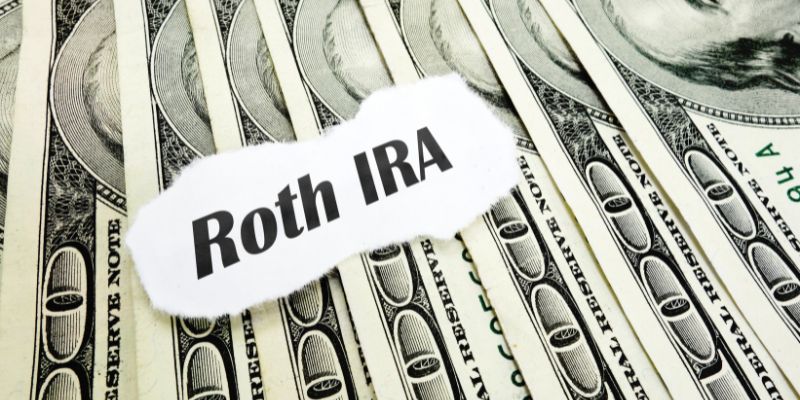A crucial part of your retirement savings is a Roth IRA. Starting to save for retirement early is a wise decision, and learning about your available retirement savings alternatives is never too soon or too late.
Understanding the fundamentals of your Individual Retirement Account's (IRA) tax benefits is crucial to the procedure. Knowing exactly how an IRA operates might help you save money by adhering to the guidelines.
We'll review the top 7 IRA mistakes that people usually make in this article. Also, we will let you know how you can avoid these mistakes!

7 IRA Mistakes To Avoid in 2023
The mistakes you must avoid are:
Not Being Aware Of Your Choices As A High Earner Or High Donor
To profit from a Roth IRA, contribute to a nondeductible IRA before converting it, even if your income is too high. All salaried or self-employed people can create a nondeductible IRA. High donors are subject to IRS restrictions on the total amount they may contribute to a regular or Roth IRA in a given year.
Contribution caps are strictly enforced; therefore, exceeding the cap may result in expensive fines (up to 6% of the excess). You can get around this regulation in a few different ways. You can fix an error if it is discovered before filing taxes, such as when you give more than your annual taxable income or on behalf of a deceased person. It's also possible to roll over the donation to a subsequent year.
Not Investing Your Contributions
Contributions to a Roth IRA begin life in the money market, or cash account, of your IRA. Although you will not lose money in the stock market in this fashion, your purchasing power will decrease over time due to inflation. Furthermore, neglecting to invest your money will prevent you from benefiting from crucial compounding.
Ensuring you invest your money is an all-too-often neglected aspect of the Roth IRA process since you have a finite amount of tax-exempt investment space. Following your Roth IRA contribution, proactively invest your funds in line with your overall financial strategy.
Not knowing the difference between a Roth and a traditional IRA.
The standard IRA and the Roth IRA are the two varieties of IRAs. Tax treatment differs for the two accounts. Contributions to a standard IRA may be eligible for a tax deduction for the year they are made. Still, contributions to a Roth IRA are essentially made with after-tax money.
A Roth allows for front-loading of taxes so that all retirement distributions—including interest and earnings—are tax-free. On the other hand, conventional IRA distributions are taxed as regular income after retirement, although they often get a tax benefit at the time of contribution. High earners may not be eligible for a tax deduction under either category if a retirement plan covers them.
Furthermore, from age 70 1/2, IRS regulations mandate minimum withdrawals from conventional IRAs. There are no minimum payout requirements with a Roth IRA during your lifetime.
Should you pass away and leave your Roth to a beneficiary who is not your spouse, that beneficiary will have to take withdrawals according to their life expectancy if they want to extend the retirement account's tax benefit till the end of their days.

Avoiding Essential Details
Regarding IRA rollovers, the biggest mistake you can make is missing small but important factors. Also, paying someone to handle your money doesn't prevent the problem. Sometimes, advisors don't take the right steps or have time to look for small mistakes.
Pay close attention to the details when doing administrative tasks like moving a savings account. Both you and your representative should keep an eye on things to ensure that the money that gets to the IRA is changing properly. It could take the IRS several months to fix transfer mistakes if you don't.
Self-Doing a Roth Conversion
If an individual's salary is too high to invest in a Roth IRA, they may consider a "backdoor" Roth or Roth transfer. Both methods transfer-tax-free funds from a conventional IRA or 401(k) to a Roth IRA.
The laws might be tricky to understand without a clear strategy, so you should proceed cautiously even though they occasionally can reduce taxes and provide you greater flexibility in retirement. Knowing that money you withdraw to convert tax-deferred accounts to Roth IRAs is taxable income is critical.
It means you must pay taxes on it in the year of conversion. Pay the taxes from a cash account to avoid depleting your retirement assets, paying additional taxes, or incurring an early withdrawal penalty. Even if you immediately move tax-deferred assets into a Roth IRA, withdrawing them may increase your tax rate.
Ignoring How A Rollover Works
You have various alternatives when leaving a 401(k) employment. One option is rolling your 401(k) into a regular or Roth IRA. Many switch their holdings to a Roth IRA for tax-free retirement distributions. Because both accounts are financed with after-tax earnings, rolling over a Roth 401(k) to a Roth IRA normally doesn't incur taxes.
All contributions and profits from a standard pre-tax 401(k) conversion are subject to income taxes. These taxes might be high in the year of the rollover; how you transfer retirement funds is also important.
Not Knowing The Regulations Of An Inherited IRA.
Immitigating an IRA is another typical situation that might lead to needless taxes or fines. Generally, you won't pay taxes on money inherited from a Roth IRA. However, there will be withdrawal policies and dates that apply to you. The date you inherited the IRA, your relationship to the account's original owner, and other circumstances will all affect your possibilities for access to the funds.
For instance, the assets may only be transferred into a new or existing IRA for surviving spouses. However, all default IRA recipients can disclaim the inherited account or accept a lump sum payout. Depending on your unique situation, there can be additional alternatives and restrictions.
Conclusion:
Use all available space in your Roth IRA because it is a limited quantity of tax-free investment space. Before anything else, confirm that one is initially available. Then, don't forget to invest the funds you provide, and be prepared to allocate your highest-yielding assets there.
The options to gain an advantage in the current economic climate are limited. Despite the relatively low contribution limitations, using the existing ones is now more crucial than ever.




